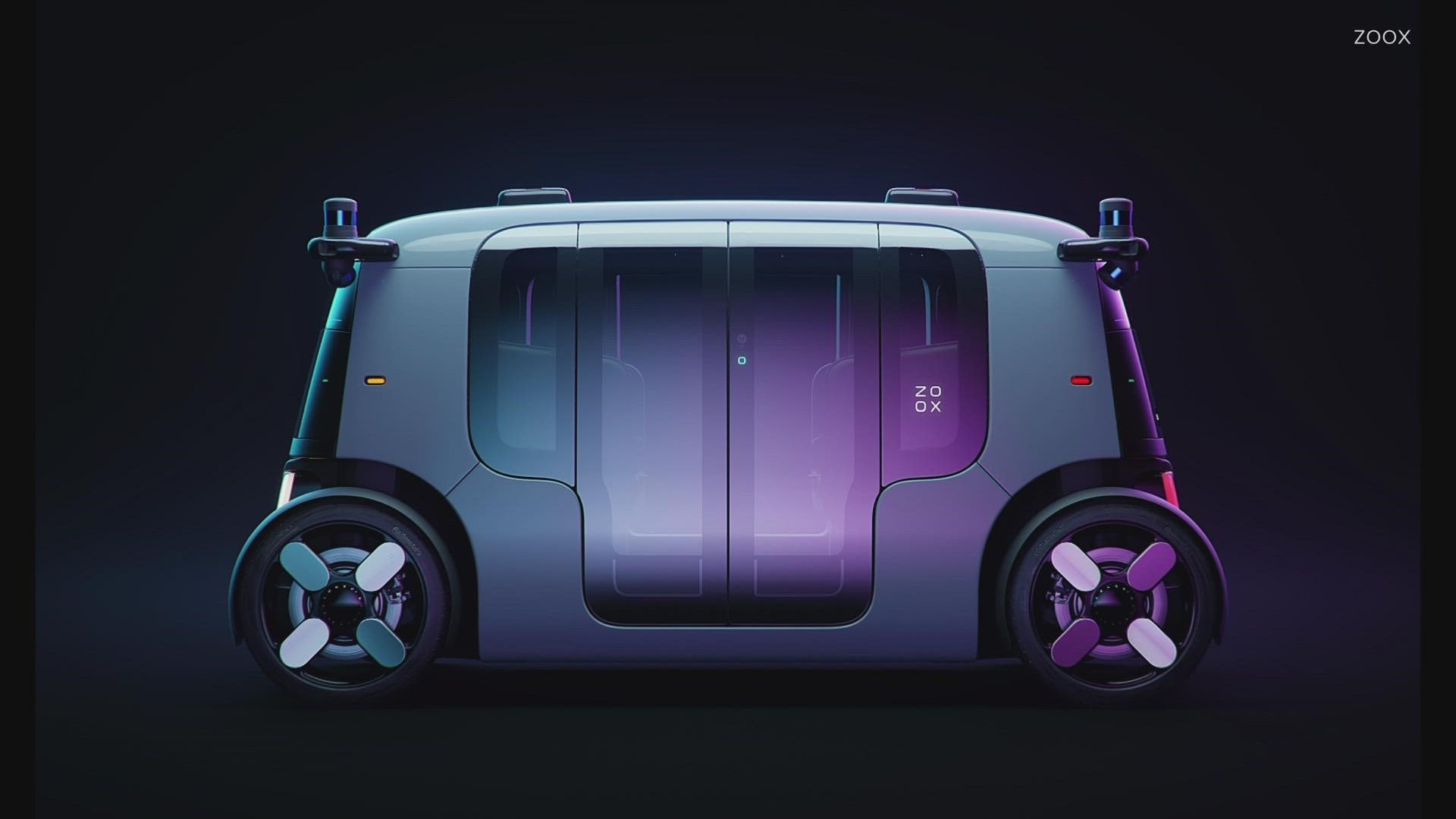SEATTLE — Zoox, the autonomous vehicle company owned by Amazon, is bringing its fleet of autonomous “robotaxis” to the windy, wet and crowded streets of Seattle to conduct more testing.
The company announced the expansion this week, with testing already taking place in Las Vegas and San Francisco.
In a release, the company said that it has “to prepare for unfamiliar roads and novel conditions. Enter Seattle.”
Zoox said the new testing city will give its vehicles and the self-driving tech new challenges to learn from like weather, infrastructure, driving culture and by-laws.
Since it rains more in Seattle than other places the company is testing, the city provides a prime location to test the company’s sensor hardware that removes water and debris.
“A smooth sea never made a skilled sailor, and it’s the exact same principle for our technology. The challenges of Seattle will let us hone our software stack and ultimately improve the behavior of our vehicles,” said Director of Prediction Kai Wang.
Initially, the company plans to launch its L3 vehicles, which are Toyota Highlanders equipped with the company’s latest sensor technology, to collect data and help build a 3D map of the city with road features like bike lanes, speed limits and traffic lights. A safety driver is present on the L3 trips.
The goal will be to eventually launch the all-electric L5 vehicles, which are specially designed passenger-only vehicles made to taxi passengers around the city.
Each vehicle will be equipped with wireless charging stations, cup holders and specially designed airbags that inflate between riders, according to the company’s website.
Along with the testing launch this month, Zoox is also opening a Seattle office in 2022. The location of the office has not been revealed.
Amazon bought Zoox in 2014 for an undisclosed amount of money. While the company’s vision is to provide an autonomous taxi service, some speculated that the retail giant would develop Zoox technology to build an autonomous package delivery service.
The world of autonomous vehicles has expanded significantly in recent years, now featuring many of the world’s top tech companies like Google as well as automotive giants like General Motors. Yet, safety and lack of oversight for the industry have created some backlash.
In June, the National Highway Traffic Safety Administration ordered companies to report crashes of fully automated and partially automated systems after it had already dispatched investigation teams to 31 crashes involving partially automated driver-assist programs.
As for Washington state, a workgroup is expected to develop final recommendations for rules around autonomous vehicles by 2023 to present to the state’s transportation committee.

